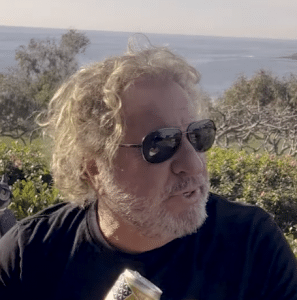Toby Keith’s Bold Move: Leaving a Major Label to Lead Show Dog Records on His Own Terms

via Toby Keith / YouTube
Toby Keith built his reputation on grit, independence, and an unwavering sense of self. His brand was never just about catchy country anthems—it was rooted in a “pull yourself up by the bootstraps” mentality that defined both his life and career. Fans admired his ability to pair humility with confidence, and behind the scenes, that same spirit guided some of his boldest choices.
By the early 2000s, Keith was not only a country superstar but one of the most bankable names in the music industry. Songs like “Should’ve Been a Cowboy,” “How Do You Like Me Now?!” and “Courtesy of the Red, White, and Blue (The Angry American)” had secured him a spot at the top of the charts and in the hearts of millions. His success also made him an invaluable asset to his label, Universal Music Group and its subsidiary, DreamWorks Records Nashville.
Yet, the bigger Keith became, the more he felt restricted by the system. With mounting expectations to churn out yearly albums and growing frustration over how his music was handled, he made the daring choice to walk away. In 2005, at the height of his career, Keith split from the industry giant to take control of his destiny.
Breaking Free from the Label Machine
Keith’s departure wasn’t a sudden impulse but a calculated response to years of pressure. As one of Universal’s biggest moneymakers, he often felt the label prioritized profit over artistry, leaving little room for genuine creative freedom. Reports suggest he believed his notoriety was being leveraged more for the company’s survival than for the growth of his own career.
The demand for constant output added fuel to his frustration. Being expected to release an album every year left little time for experimentation or personal reflection. Keith wasn’t content with being a cog in a machine that measured success purely in numbers. For him, music was personal—and he wanted the freedom to make choices that reflected his values rather than a corporate bottom line.
So, in true Toby Keith fashion, he decided to take matters into his own hands. Leaving a powerhouse like Universal meant stepping into uncharted waters, but Keith embraced the challenge. His move wasn’t just about defiance; it was about reclaiming control over his art, his business, and his future.
View this post on Instagram
A New Era of Independence
Keith’s vision came to life with the creation of Show Dog Records in 2005. Teaming up with Scott Borchetta, who would later become known for founding Big Machine Records, Keith set out to create a label where decisions could be made swiftly and artists had more freedom. As he told the Associated Press, “We can literally make a decision at noon and get started by one p.m.” That sense of agility was the heart of Show Dog’s philosophy.
Naturally, Keith became the label’s first client, but he didn’t stop there. Show Dog went on to sign a roster of respected country artists, including Trace Adkins, Clay Walker, Carter’s Chord, and Waterloo Revival. By stepping into the role of label head, Keith not only secured his own independence but opened doors for other musicians seeking the same kind of artistic and logistical freedom.
Keith’s involvement in Borchetta’s Big Machine venture also proved historic. Together, they played a role in shaping the early career of Taylor Swift, who would go on to redefine modern country and pop music. In this sense, Keith’s leap of faith created ripple effects that stretched far beyond his own catalog.
A Businessman and Trailblazer
Four years after founding Show Dog Records, Keith made another savvy business move by selling the label to Universal South Records in 2009. While the financial details were never disclosed, the sale marked a strikingly full-circle moment—he had left Universal to gain independence, only to eventually sell his successful venture back to a branch of the same industry giant.
Rather than undermining his independence, the move highlighted Keith’s business acumen. By proving that Show Dog could thrive on its own, he showcased the power of artists taking charge of their careers. The sale underscored his ability to balance artistry with entrepreneurship, cementing his legacy as more than just a hitmaker.
In the end, Toby Keith’s journey with Show Dog Records wasn’t only about personal victory—it was a statement for the entire country music industry. His bold step demonstrated that artists could carve their own path, challenge industry norms, and still find success. For Keith, leaving a major label wasn’t the end of a chapter; it was the beginning of a new era defined on his own terms.












